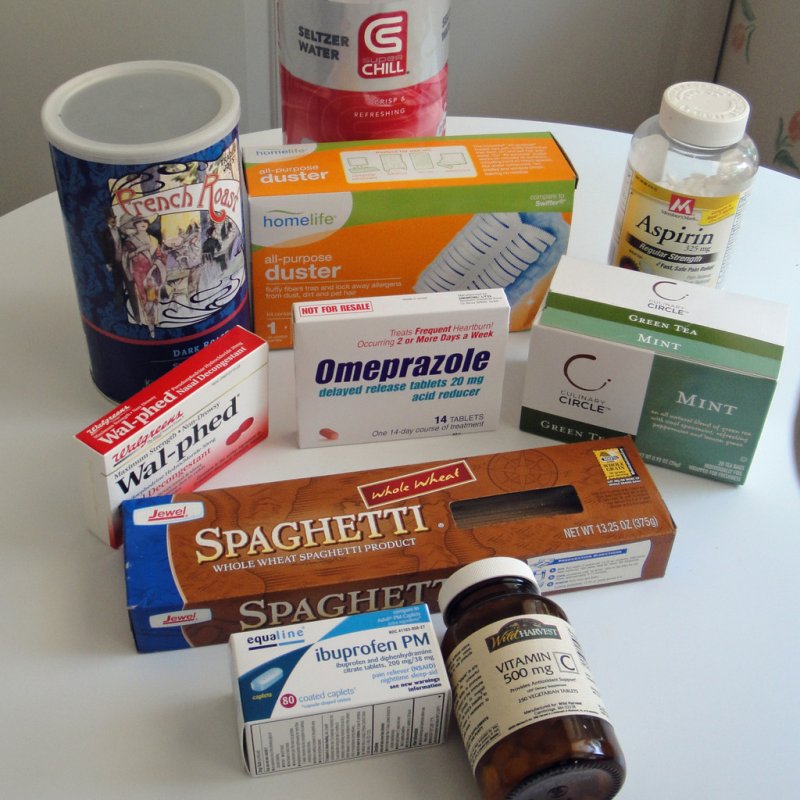Private labels appear on a wide variety of items.
What's in a name? Big bucks, and more retailers are hoping to cash in.
With consumers in a money-saving mood but still seeking more upscale products, retailers are hoping to make inroads with private labels that encompass products with premium ingredients and more lucrative margins than brand names.
Planet Retail, which provides analysis to retail operations worldwide, estimates private labels make up about 21 percent of grocery and near-grocery (cleaning products, health and beauty aids and other non-food items found in grocery stores) sales, with penetration getting a boost from the recent recession. The Private Label Manufacturers Association estimated total sales at $86.4 billion annually in the United States.
Matthias Queck, Planet Retail research director, said the hardest thing for private labels to overcome is the perception of lower quality, a leftover from the 1970s push that saw economy labels introduced as an answer to the oil crisis.
"They were lower-level in terms of quality, which really hurt the image of private labels," Queck said in a telephone interview from Frankfort, Germany. "The negative connotation has been there since the 1970s. It made it easy for national brands to compete. This is changing -- and in past years, quite rapidly. Private labels are becoming much more professional."
The lure for retailers is obvious. Private labels give them a chance to control what goes into the product, the manufacturing process, the packaging and the distribution. The biggest drawback, besides having to oversee the entire process, is liability -- if something goes wrong, the retailer bears the responsibility whereas when it comes to national brands, all a retailer has to do is put the product on the shelf and leave the worry to the maker.
But the allure is the profit margin, which also is controlled by the retailer. Queck was unable to come up with a percentage but he said when going beyond the economy-generic brands, that margin is substantial.
And retailers have been going upmarket with their brands
"As long as consumers were willing to spend more money for their foods, you could offer more products and more sophisticated products. There is no market price consumers have in mind and profit margins allowed them to go upmarket," Queck said.
"Retail branding means making their brand more valuable. Premium private label lines are a very good way to support your brands, unlike economy brands. But you do have to have, because you do want to be price competitive … but it's bad if you're the most expensive. Retailers do not really want customers to buy generics because they do not make money. But they have to have them to be cheap so they're not the most expensive (store in overall pricing)."
Research presented at the Private Label Trade Show indicates sales have increased 34 percent in the past five years to $55.5 billion in supermarkets and by 45 percent to $6.1 billion in drug stores. In the last three years, sales have increased 14 percent at all outlets to $86.4 billion.
The research indicates the shift to private labels started long before the recession.
"In many instances, shoppers no longer can distinguish between national and private label brands," the Hartman Group reports. "What's most interesting is not so much the fact that it's happening, but that people don't really care that they don't know the difference. The importance of branding and the badge value of brands in the past is quickly giving way to a greater emphasis on the product and the overall experience controlled by the retailer."
As a result, national brands have been reacting with two-for-one and buy-two-get-one-free promotions as well as discounts, which Queck said cannot last.
"I think the trend is growing penetration of private label because the retailer wants them. They have more control and it's much more lucrative. This is why I think the long-term trend will be toward private labels. Promotion wars can only be short-term or mid-term solutions in times of crisis."
Among the most successful private label retailers are Tesco in Britain, Germany's Aldi and Trader Joe's, as well as U.S. retail giant Walmart.
Queck said Tesco likely has the most sophisticated offerings but the success of Aldi and Trader Joe's indicates "there's some good know-how there."










